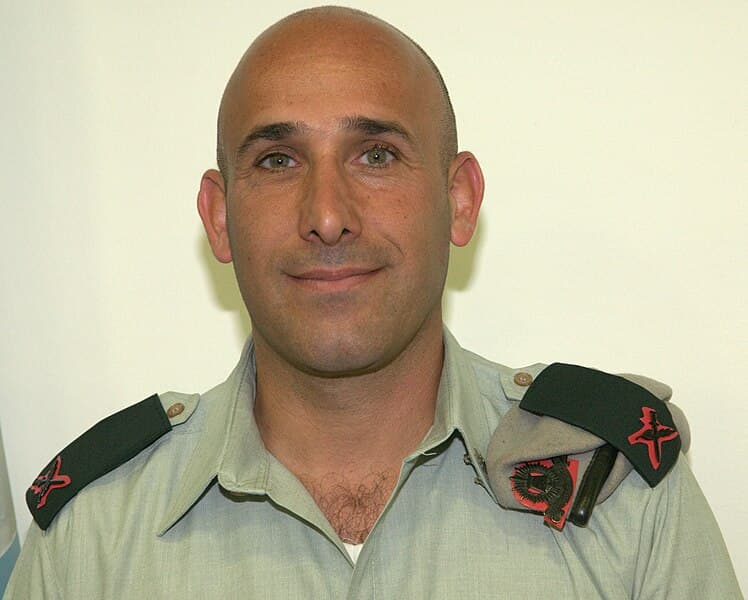Israeli General Says That Confronting Iran, Not Negotiating With Palestinians, Is Key To Avoiding Wider War
The military man, in conversation with the Sun, declares that the Biden administration fails to realize that, ‘if you are weak, you are inviting a war.’

A former brigadier general in the Israel Defense Forces, Amir Avivi, who once served as a deputy division commander at Gaza, says that blocking Iran and its proxies — not recognizing a Palestinian state — is crucial to peace between Israel and its Arab allies.
General Avivi in conversation with the Sun’s foreign editor, Benny Avni, spoke of the need for Western allies to recognize the stakes of the conflict in the Middle East. According to the chairman and founder of the Israel Defense and Security Forum, confronting China’s encroachments on Taiwan and Russia’s on Ukraine are of a piece with arresting Iran’s in the Middle East.
“The only way to possibly deter China and Russia from further aggression in the Pacific or in Europe,” the Israeli general explained, “is through demonstrating a willingness to pose a military threat on Iran.”
Asked about the current American treatment of the Shia theocracy, General Avivi was not impressed. “This is the way Chamberlain treated Germany until Germany conquered all of Europe,” he reckoned. Mr. Biden fails to realize that, “if you are weak, you are inviting a war” and that “if you want to avoid a war, you must be strong and resolute.”
General Avivi remarked that America has been “playing a double game: On one side saying that they want to get close to Saudi Arabia and on the other side flirt with Iran.” In the weeks leading up to October 7, reports by Semafor detailed an extensive network of Biden administration officials who had past relations with Iranian intelligence officials. Most notable was the former Special Representative for Iran, Robert Malley. Mr. Malley has since left the administration and has had his security clearance revoked over the mishandling of classified documents, allegedly related to Iran.
In response to reports that America could be advancing recognition of a Palestinian state in exchange for a peace deal between Saudi Arabia and Israel, the former general was skeptical. “I don’t think the Saudis care at all about the Palestinians and a Palestinian state,” General Avivi ventured. “They care about two big threats which endanger them: Iran and the Muslim Brotherhood.”
General Avivi, who trained as a combat engineer, added that the Saudis “want to see Hamas destroyed, But from America, they want to see a serious coalition that will really challenge Iran and its proxies,” he added. He noted that Hamas are Sunnis and therefore exist in less than perfect alignment with Iran’s religious worldview. “They are a plastic cup: one-time usage,” the general quipped. Rather, it is Hezbollah, he estimates, which is the “crown jewel” of Iranian proxies.
The son of an Israeli ambassador, General Avivi served as the assistant to Israel’s Chief of the General Staff, the commander of an infantry brigade, and the commander of the School of Military Engineering. General Avivi’s tenure also included two stints at Gaza, serving as a combat engineer in the late 1990s and deputy division commander in the Gaza Strip.
Assessing the current state of the war in Gaza, the seasoned commander was satisfied with the pace of the IDF’s progress.
One area General Avivi spoke about was the Jewish state’s effectiveness in fighting underground. “At the beginning, the IDF did not want to fight inside tunnels. They would explode them, flood them, but not really fight in them.” Recently, however, the general noted that at Khan Younis, “in three months, the IDF adopted technologies and techniques. They are moving and destroying Hamas underground systematically.”
General Avivi adds that “this is making Hamas nervous because it is just a matter of time until we close on the leadership and possibly reach the hostages. This is why they’re so desperate to get a deal now because they’re on the verge of being destroyed.” Asked about the war’s disappointments, he did not hide his dismay for Israel’s southeastern neighbor, Egypt.
“Frankly, I am very unhappy with the Egyptians,” General Avivi relates. “First, they enabled endless amounts of weapons to go into Gaza underneath the nine-mile wide border between Gaza and the Sinai.” He adds that, “We see what is going on in Gaza. We know where this all came from.”

